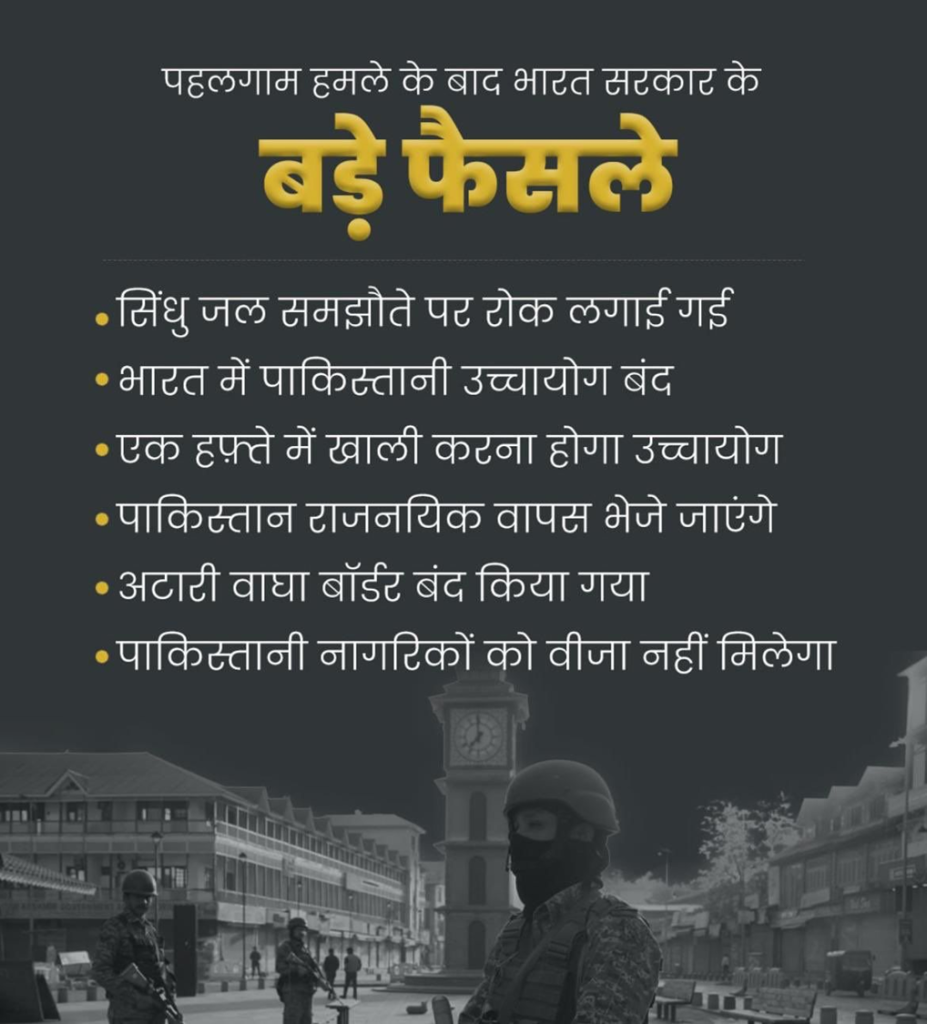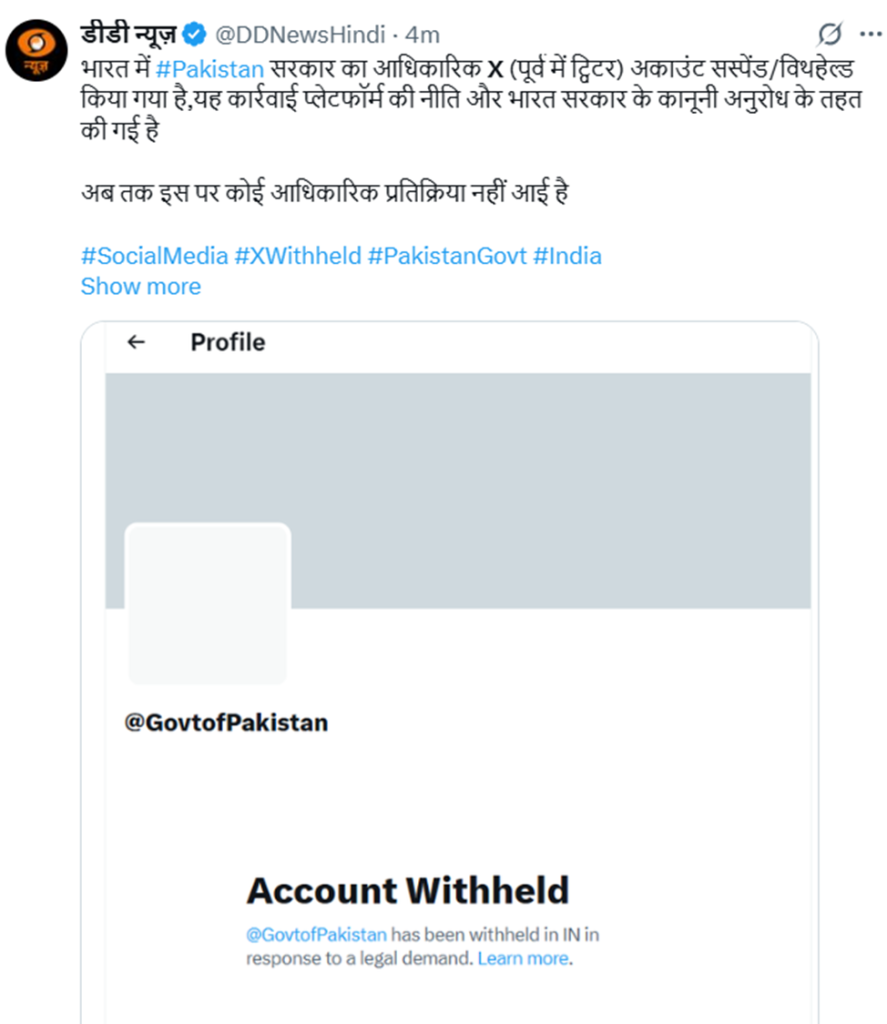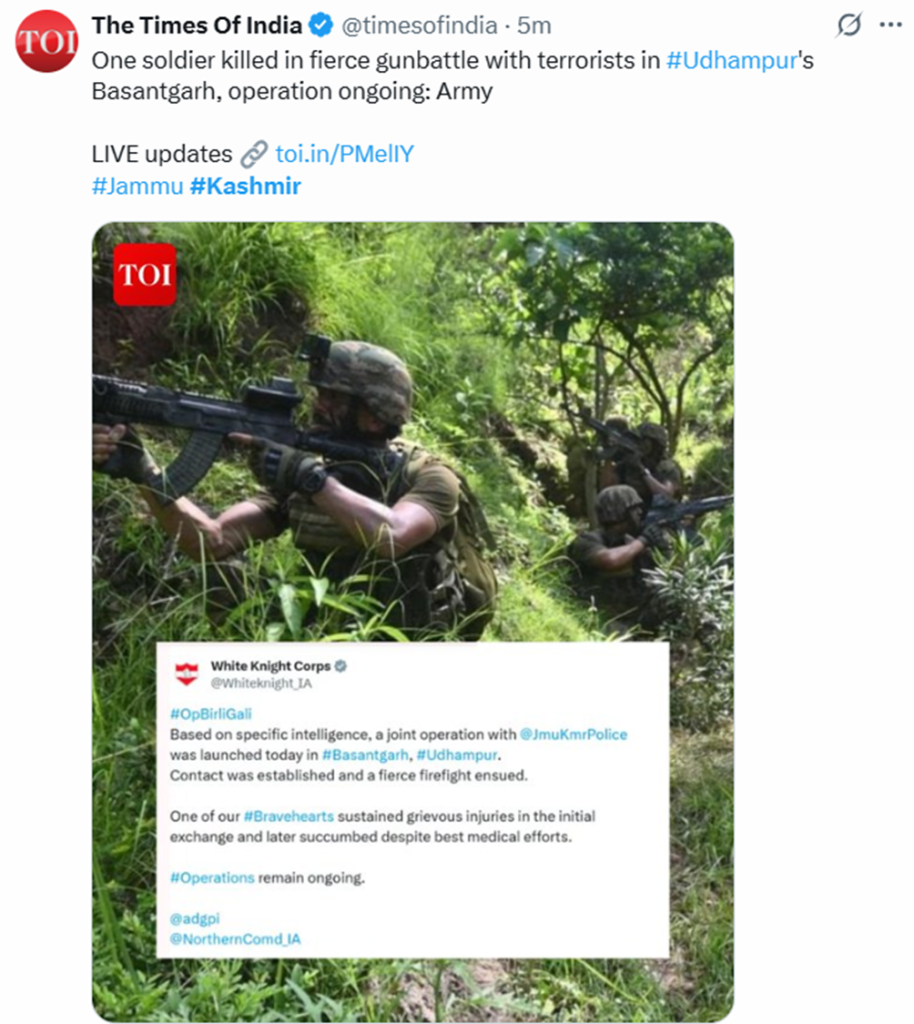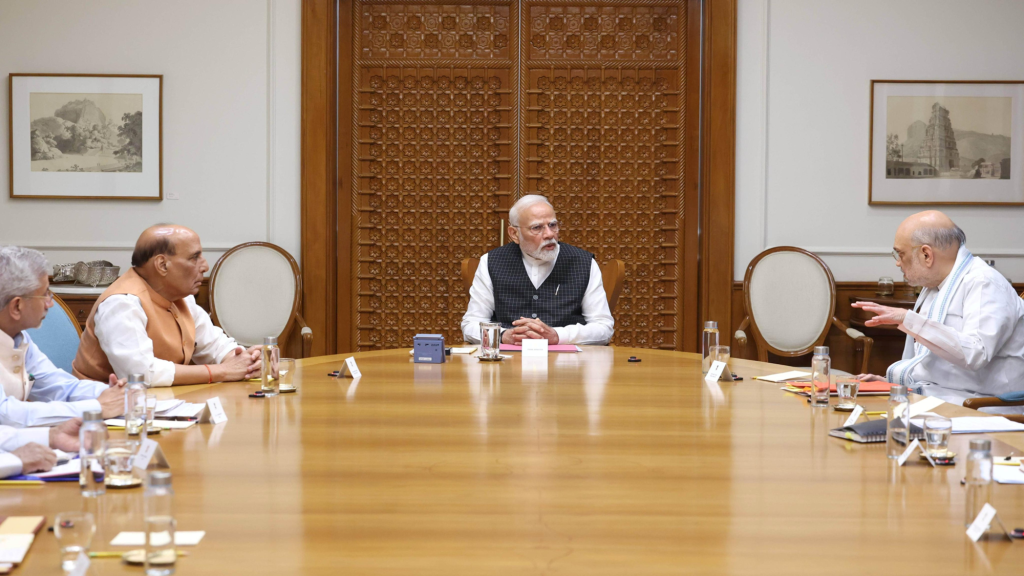28 people, mostly tourists, were gunned down by terrorists in Jammu and Kashmir’s Pahalgam on Tuesday.
Bharat Wants Gaza Like Action On Pakistan
The Central government on Wednesday announced punitive actions against Pakistan in response to the Pahalgam terror attack, including putting in abeyance the Indus Waters Treaty, closing the integrated check post at the Attari border and cutting down the overall strength of the high commissions.
The CCS recommended five actions against Pakistan
- The Indus Waters Treaty of 1960 will be held in abeyance with immediate effect until Pakistan credibly and irrevocably abjures its support for cross-border terrorism, said the statement.
- The Integrated Check Post Attari will be closed with immediate effect. Those who have crossed over with valid endorsements may return through that route before 01 May 2025.
- Pakistani nationals will not be permitted to travel to India under the SAARC Visa Exemption Scheme (SVES) visas. Any SVES visas issued in the past to Pakistani nationals are deemed cancelled. Any Pakistani national currently in India under SVES visa has 48 hours to leave India.
- The Defence/Military, Naval and Air Advisors in the Pakistani High Commission in New Delhi are declared Persona Non Grata. They have a week to leave India. India will be withdrawing its own Defence/Navy/Air Advisors from the Indian High Commission in Islamabad. These posts in the respective High Commissions are deemed annulled. Five support staff of the Service Advisors will also be withdrawn from both High Commissions.
- The overall strength of the high commissions will be brought down to 30 from the present 55 through further reductions, to be affected by 01 May 2025.
The CCS directed all forces to maintain high vigil.
“As with the recent extradition of Tahawwur Rana, India will be unrelenting in the pursuit of those who have committed acts of terror or conspired to make them possible,” it added.
But what could be the impact of this move?
The Indus system comprises the main river, Indus, and five left bank tributaries, i.e Ravi, Beas, Sutlej, Jhelum, and Chenab. Kabul, the right bank tributary, does not flow through India.
The Ravi, the Beas, and the Sutlej are together called Eastern rivers while the Chenab, the Jhelum and the Indus are called Western Rivers. Its waters are critical to both India and Pakistan.
Pradeep Kumar Saxena, who served as India’s Indus Water Commissioner for over six years, told PTI,” India, as an upper riparian country, has multiple options. This could be the first step towards the abrogation of the Treaty, if the Government so decides.”
After the deadly Uri attack in September 2016, where 19 Indian soldiers were killed, India launched what it called “surgical strikes” across the de facto border – also known as the Line of Control (LoC) – targeting what it said were militant launch pads in Pakistan-administered Kashmir.
And in 2019, after at least 40 paramilitary personnel were killed in Pulwama, India hit an alleged militant camp in Balakot with airstrikes – its first such strike deep inside Pakistan since 1971. Pakistan responded with air raids, leading to a dogfight and the brief capture of an Indian pilot. Both sides showed strength but avoided full-scale war.
Two years later, in 2021, they agreed to an LoC ceasefire, which has largely held – despite recurring militant attacks in Indian-administered Kashmir.
Michael Kugelman, a foreign policy analyst, believes that the combination of high fatality levels and the targeting of Indian civilians in the latest attack “suggests a strong possibility of an Indian military response against Pakistan, if Delhi determines or merely assumes any level of Pakistani complicity”.












